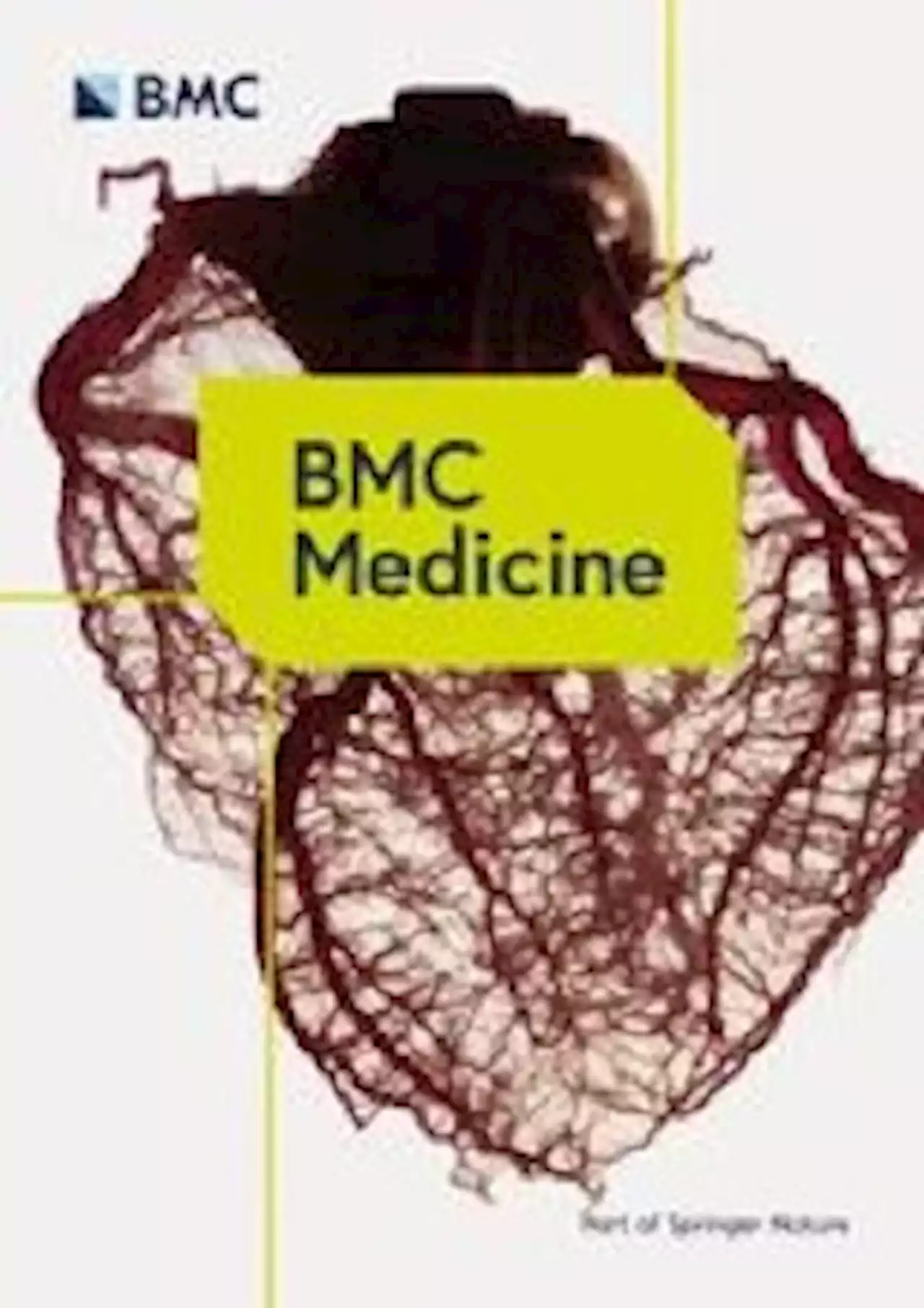How nanomedicine is revolutionizing care for cardiovascular disease Cardiovascular Disease Nanomedicine Cardiology NatureCVR michiganstateu MIT harvardmed
By Bhavana KunkalikarApr 6 2023Reviewed by Benedette Cuffari, M.Sc. Cardiovascular disease is the primary cause of death worldwide and, as a result, poses a significant challenge for patients, clinicians, and researchers. CVD encompasses various diseases that affect the heart, blood vessels, and blood.
Nanomaterials have the potential to deliver therapeutics that can inhibit macrophage and monocyte proliferation and trafficking, activate and polarize helper T-cells, trigger cholesterol efflux, and boost apoptosis. Taken together, these processes can help facilitate the anti-inflammatory resolution of atherosclerotic plaques, as well as the physiological factors associated with other CVDs.
Related StoriesNanomaterials have limited molecular targets associated with CVD pathogenesis as compared to normal tissues due to a reduced number of molecular mechanisms that have been implicated in CVD. Nevertheless, CVD imaging can be used to identify a high prevalence of diverse populations when an effective imaging target is detected, which is in contrast to cancer that may not have the same level of prevalence.
United Kingdom Latest News, United Kingdom Headlines
Similar News:You can also read news stories similar to this one that we have collected from other news sources.
 People with genetic predisposition to obesity may have lower risk of cardiovascular diseaseThe risk of developing cardiovascular disease is lower in people with obesity who have a genetic predisposition for high BMI than people with obesity influenced mainly by environmental factors such as lifestyle, researchers from Karolinska Institutet report in eClinicalMedicine.
People with genetic predisposition to obesity may have lower risk of cardiovascular diseaseThe risk of developing cardiovascular disease is lower in people with obesity who have a genetic predisposition for high BMI than people with obesity influenced mainly by environmental factors such as lifestyle, researchers from Karolinska Institutet report in eClinicalMedicine.
Read more »
 Long COVID linked to increased sick leave rateLong COVID linked to increased sick leave rate Coronavirus Disease COVID LongCOVID PASC medrxivpreprint KommItEksamen UniSouthDenmark koebenhavns_uni
Long COVID linked to increased sick leave rateLong COVID linked to increased sick leave rate Coronavirus Disease COVID LongCOVID PASC medrxivpreprint KommItEksamen UniSouthDenmark koebenhavns_uni
Read more »
 Long COVID's significant impact on health calls for greater consideration in pandemic policy planningLong COVID's significant impact on health calls for greater consideration in pandemic policy planning Coronavirus Disease COVID Omicron LongCOVID Policy Medicine Health PublicHealth Epidemiology IntJEpidemiol UniMelb
Long COVID's significant impact on health calls for greater consideration in pandemic policy planningLong COVID's significant impact on health calls for greater consideration in pandemic policy planning Coronavirus Disease COVID Omicron LongCOVID Policy Medicine Health PublicHealth Epidemiology IntJEpidemiol UniMelb
Read more »
Prevalence of Antiphospholipid Antibodies and Association With Incident Cardiovascular EventsThis cohort study examines the association between measurements of antiphospholipid antibodies (aPL) at a single time point and atherosclerotic cardiovascular disease risk in a diverse population.
Read more »
 Association of the American Heart Association’s new “Life’s Essential 8” with all-cause and cardiovascular disease-specific mortality: prospective cohort study - BMC MedicineBackground The American Heart Association recently updated its construct of what constitutes cardiovascular health (CVH), called Life’s Essential 8. We examined the association of total and individual CVH metrics according to Life’s Essential 8 with all-cause and cardiovascular disease (CVD)-specific mortality later in life. Methods Data were from the National Health and Nutrition Examination Survey (NHANES) 2005–2018 at baseline linked to the 2019 National Death Index records. Total and individual CVH metric scores including diet, physical activity, nicotine exposure, sleep health, body mass index, blood lipids, blood glucose, and blood pressure were classified as 0–49 (low level), 50–74 (intermediate level), and 75–100 (high level) points. The total CVH metric score (the average of the 8 metrics) as a continuous variable was also used for dose–response analysis. The main outcomes included all-cause and CVD-specific mortality. Results A total of 19,951 US adults aged 30–79 years were included in this study. Only 19.5% of adults achieved a high total CVH score, whereas 24.1% had a low score. During a median follow-up of 7.6 years, compared with adults with a low total CVH score, those with an intermediate or high total CVH score had 40% (adjusted hazard ratio [HR] 0.60, 95% confidence interval [CI] 0.51–0.71) and 58% (adjusted HR 0.42, 95% CI 0.32–0.56) reduced risk of all-cause mortality. The corresponding adjusted HRs (95%CIs) were 0.62 (0.46–0.83) and 0.36 (0.21–0.59) for CVD-specific mortality. The population-attributable fractions for high (score ≥ 75 points) vs. low or intermediate (score | 75 points) CVH scores were 33.4% for all-cause mortality and 42.9% for CVD-specific mortality. Among all 8 individual CVH metrics, physical activity, nicotine exposure, and diet accounted for a large proportion of the population-attributable risks for all-cause mortality, whereas physical activity, blood pressure, and blood glucose accounted for a large proportion of CVD-sp
Association of the American Heart Association’s new “Life’s Essential 8” with all-cause and cardiovascular disease-specific mortality: prospective cohort study - BMC MedicineBackground The American Heart Association recently updated its construct of what constitutes cardiovascular health (CVH), called Life’s Essential 8. We examined the association of total and individual CVH metrics according to Life’s Essential 8 with all-cause and cardiovascular disease (CVD)-specific mortality later in life. Methods Data were from the National Health and Nutrition Examination Survey (NHANES) 2005–2018 at baseline linked to the 2019 National Death Index records. Total and individual CVH metric scores including diet, physical activity, nicotine exposure, sleep health, body mass index, blood lipids, blood glucose, and blood pressure were classified as 0–49 (low level), 50–74 (intermediate level), and 75–100 (high level) points. The total CVH metric score (the average of the 8 metrics) as a continuous variable was also used for dose–response analysis. The main outcomes included all-cause and CVD-specific mortality. Results A total of 19,951 US adults aged 30–79 years were included in this study. Only 19.5% of adults achieved a high total CVH score, whereas 24.1% had a low score. During a median follow-up of 7.6 years, compared with adults with a low total CVH score, those with an intermediate or high total CVH score had 40% (adjusted hazard ratio [HR] 0.60, 95% confidence interval [CI] 0.51–0.71) and 58% (adjusted HR 0.42, 95% CI 0.32–0.56) reduced risk of all-cause mortality. The corresponding adjusted HRs (95%CIs) were 0.62 (0.46–0.83) and 0.36 (0.21–0.59) for CVD-specific mortality. The population-attributable fractions for high (score ≥ 75 points) vs. low or intermediate (score | 75 points) CVH scores were 33.4% for all-cause mortality and 42.9% for CVD-specific mortality. Among all 8 individual CVH metrics, physical activity, nicotine exposure, and diet accounted for a large proportion of the population-attributable risks for all-cause mortality, whereas physical activity, blood pressure, and blood glucose accounted for a large proportion of CVD-sp
Read more »
 Trade ministers flag researchers as export ban riskTrade ministers flag researchers as possible vector of tech sanction-busting
Trade ministers flag researchers as export ban riskTrade ministers flag researchers as possible vector of tech sanction-busting
Read more »
